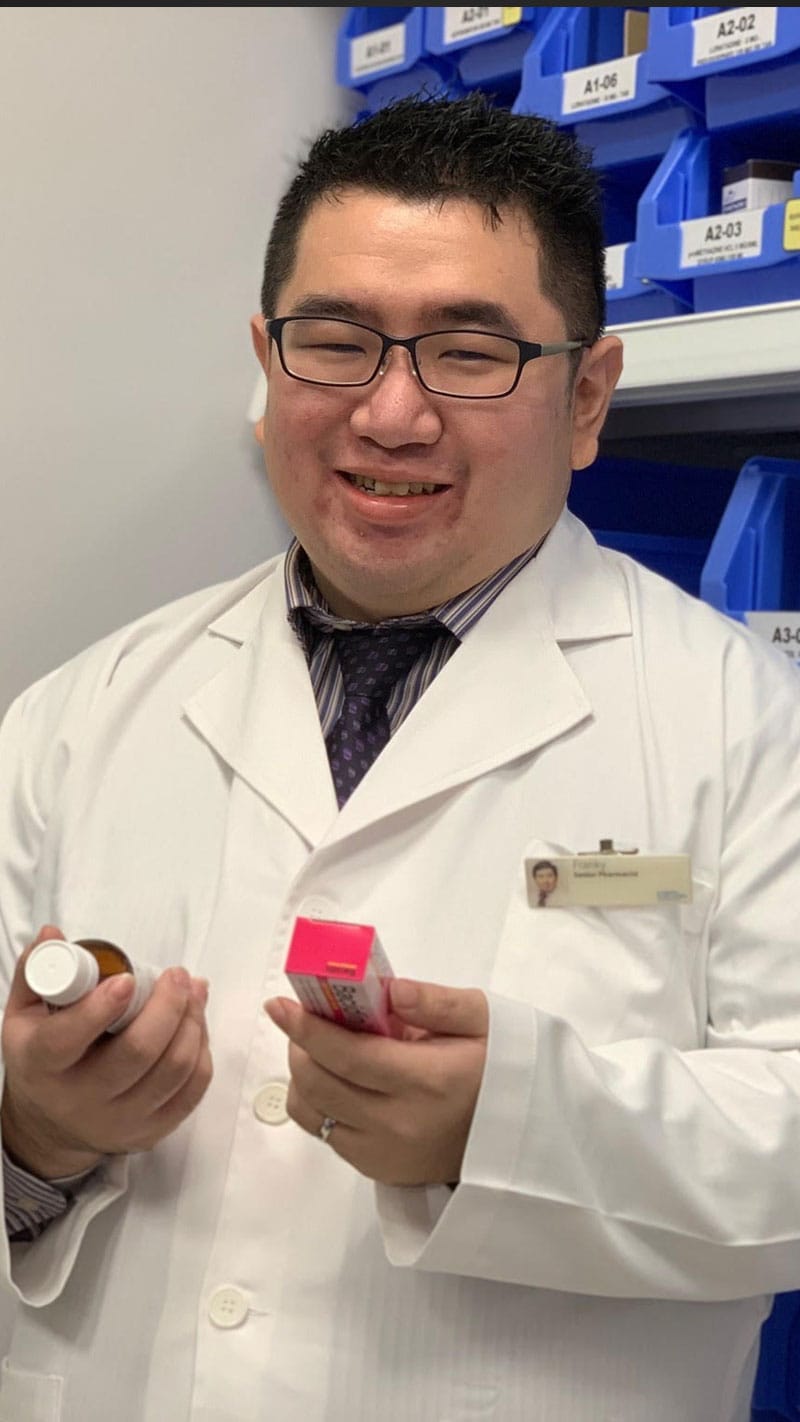
Two years ago, with no information technology skills to speak of, Monash University graduate Franky (who has no last name, as is common in Indonesia) “just jumped in” to the relatively new and rapidly evolving field of pharmacy informatics.
It was a sink-or-swim situation, and Indonesian-born Franky swam, buoyed by his love of learning and his experience as an inpatient pharmacist.
It was a sink-or-swim situation, and Indonesian-born Franky swam, buoyed by his love of learning and his experience as an inpatient pharmacist. He now works for Woodlands Health Campus, a public hospital in Singapore, and is involved in a project to implement electronic health records at multiple hospitals within the country’s public healthcare system.
“I had to learn everything about pharmacy informatics from scratch,” he says of the challenge he took on.
Pharmacy informatics, as described by the Healthcare Information and Management Systems Society (HIMSS), focuses on the acquisition, storage, analysis and use of medication-related data and knowledge for optimal patient care and health outcomes.
It’s a broad scientific field that encompasses healthcare technology systems, medication-use systems and personal data management. It involves working with clinicians, nurses and patients, and it also tackles an age-old medical problem – doctors’ notoriously bad handwriting.
“The doctors can now order the medication inside the electronic health record, and the informatics pharmacists ensure that the options that can be selected by the doctor are clinically accurate,” he says. “This reduces the incidence of clinical error. It will also help facilitate data analysis.”
It was the multidisciplinary nature of pharmacy that attracted Franky to the field in the first place – an intersection of medicine, chemistry, and caring for people. “The possibilities are so diverse,” he says.
"Pharmacy informatics is still evolving. There might be one or two lectures about it at university during undergraduate studies, but most of it we need to learn on the job."
After completing secondary school in Singapore, Franky moved to Australia to study at Monash University’s Faculty of Pharmacy and Pharmaceutical Sciences, impressed by its long track record as the Victorian College of Pharmacy, which was established in 1881 and merged with Monash in the 1990s. The faculty now consistently ranks in the world’s top three in pharmacy and pharmacology.
He especially enjoyed learning of the history of pharmacy practice from faculty members, who had helped shape modern practices through their involvement in policy-making.
Franky graduated in 2012 and is now at the forefront of his field. He is also enrolled in an online Master of Health Care (Digital Health) at Finland’s Savonia University of Applied Sciences.
“While pharmacy practice is well-established in Singapore, pharmacy informatics is still evolving. There might be one or two lectures about it at university during undergraduate studies, but most of it we need to learn on the job,” he says.
“I see myself as a jack-of-all-trades. The opportunities are endless, and at times you need to throw yourself into the fire in order to learn things.”
Franky is also keen to help others navigate their way through the field of pharmacy informatics. He’s awaiting his first mentee through Monash’s online Alumni to Alumni Mentoring program, which gives students 30-minute mentoring sessions with alumni anywhere in the world. Last year, he mentored a Doctor of Pharmacy student in the US through the HIMSS.
“I feel a sense of responsibility to share knowledge, not only with patients and the public, but with counterparts in other parts of the world, as well as students and junior pharmacists. It’s always a joy,” he says.
Franky is also a member of the HIMSS Technology Informatics Guiding Education Reform (TIGER) Taskforce, and acts as the liaison for its co-chairpersons.
“I like to help others that will come after me, as I have learned from those who have come before me, to make their learning journey smoother,” he says.
Five easy steps to mentoring
You can choose to be a mentor, a mentee or both without the demands of an ongoing mentoring relationship. You'll be able to step in and out of the program to allow for your other commitments. Interested?





